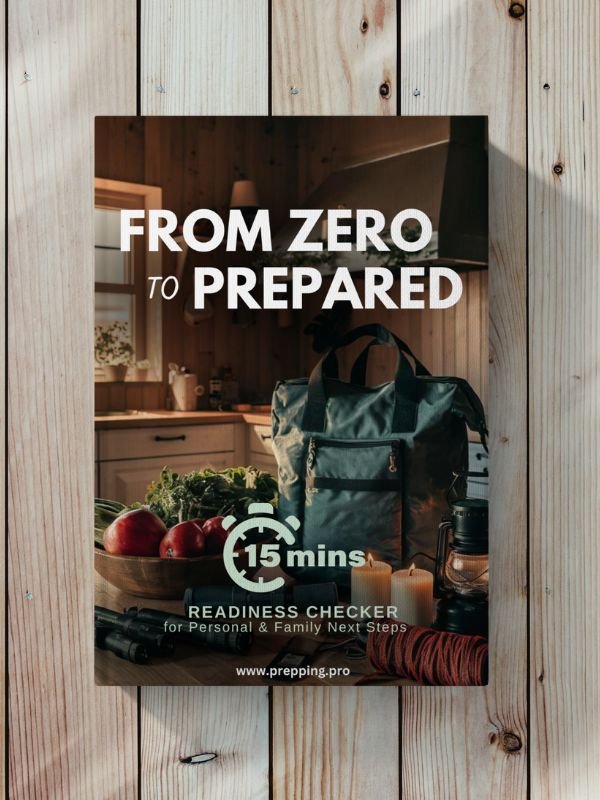During martial law, follow these 5 crucial martial law survival tips: 1) Understand how it could personally affect your civil liberties, 2) Audit emergency preparedness strategies for sustained restrictions, 3) Assess your situation/location/bug-out options, 4) Stay informed on the evolving situation and legal advice, 5) Keep a low profile to stay safe in a state of emergency.
Table of Contents
1) Understand How Martial Law Could Affect Your Civil Liberties Personally
One of the most important things to do during martial law is to thoroughly understand how it could directly impact your personal life and civil liberties. Martial law grants increased authority to military and law enforcement to maintain order, often leading to restrictions on citizen rights.
Take time to research the specific martial law policies and rules in your area. How might they limit your movement, communications, ability to work, access to supplies, etc.? Having this clear picture allows you to plan accordingly.
Be prepared for potential scenarios like:
| Potential Restriction | Implications |
|---|---|
| Curfews | Being prevented from being out past certain hours |
| Travel Limitations | Civilian travel and transportation restricted |
| Communication Monitoring | Phones, internet, media subject to censorship |
| Assembly Bans | Public gatherings not permitted |
| Increased Checkpoints | More security checkpoints and questioning |
By grasping how martial law measures could disrupt your day-to-day life, you can make more informed decisions about your actions and contingency plans.
2) Audit Emergency Preparedness Strategies for Sustained Periods of Restriction
With the elevated security and potential disruptions to supply chains during martial law, it’s crucial to audit your stockpile of essential supplies as part of your emergency preparedness strategies. You want sufficient provisions to sustain your household for an extended period with limited outside access.
Conduct a full inventory of your food, water, medical supplies, hygiene products, fuel sources, and other necessities. Identify any shortfalls and immediately work to build up your reserves.
Additionally, ensure you have adequate supplies for any special needs members of your household, such as elderly, infants, or those requiring medical devices/medications.
Some key supplies to stock up on include:
| Supply Category | Example Items |
|---|---|
| Food | Non-perishable foods, nutrition bars |
| Water | Bottles, filters, purification tablets |
| Medical | First aid, medications, medical devices |
| Hygiene | Toilet paper, feminine products, soap |
| Power | Generators, solar panels, batteries |
| Self-Defense | Permitted self-defense tools |
Having ample provisions allows you to minimize exposure and travel during periods of heightened restrictions under martial law.
What Kind of Prepper Are You?
Are you on the level you think you are? Find out.
3) Assess Your Situation Regarding Location, Family, and Bug-Out Options
Take into account the specifics of your current living situation and how it could be impacted during an imposition of martial law. Factors like your geographic location, living arrangements, proximity to family members, and availability of bug-out options should be carefully evaluated.
If you reside in an urban area, consider potential challenges like population density, ability to quietly travel if needed, access to open spaces, etc. Rural families may have different considerations for securing remote properties.
Map out locations of close friends or family members, determining if temporarily unifying households could be a wise option for pooling resources and community support initiatives.
Identify possible bug-out locations and routes that could be utilized in an emergency exit scenario if the situation at your primary residence becomes untenable. Ensure you have the supplies and plans in place to safely relocate on short notice if required.
| Living Situation | Considerations |
|---|---|
| Urban Area | Population density, travel ability, open spaces |
| Rural Area | Securing remote properties, resource availability |
| Near Family | Unifying households for combined resources |
| Remote Location | Identifying bug-out options and routes |
By comprehensively assessing your unique circumstances, you can make more informed decisions about sheltering-in-place versus needing to relocate to stay safe in a state of emergency.
4) Stay Informed About the Evolving Situation and Legal Landscape
During periods of martial law, the situation can remain fluid with circumstances rapidly evolving. It’s vital to stay vigilantly informed through reliable information sources to adapt your preparedness plan as needed.
Continuously monitor official government sources, emergency broadcasts, respected domestic and international news outlets for important legal advice and updates. Be wary of misinformation circulating on social media.
Pay close attention to any changes in:
- Imposed curfew times and areas
- Amendments to legal policies and citizen rights
- Checkpoints, roadblocks or off-limit zones
- Exemptions for travel related to jobs, healthcare, etc.
- Safety conditions and areas of heightened violence/risk
Maintain a record of the information flowing from these trusted sources. This situational awareness allows you to make informed choices to keep your family safe and compliant with all legal orders from authorities.
5) Adopt a Low-Profile Attitude to Stay Safe in a State of Emergency
When martial law measures are in effect, it’s wise to minimize any actions or behaviors that could draw unwanted attention or potential confrontation with military and law enforcement.
Remain calm, courteous and compliant when encountering authorities. Follow all legal orders and don’t offer resistance, even if you disagree. Heated debates or physical conflicts will only increase risk to your safety.
Avoid traveling, making acquisitions, or carrying out activities that could be perceived as threatening or uncooperative. Something as simple as stocking up on gasoline could attract unneeded scrutiny.
Reduce your external visibility and profile as much as possible:
| Low Profile Action | Action Steps |
|---|---|
| Obey Curfews | Stay off the streets during curfew hours |
| Limit Travel | Only go out when absolutely necessary |
| Avoid Noisy Projects | Postpone home repairs, construction, etc. |
| Careful Communication | Be cautious discussing situation publicly |
The core principle is keeping a low profile and not drawing any extra attention, challenge or suspicion to yourself and your household. This prudent approach can prevent minor misunderstandings that could unnecessarily escalate during the societal turmoil of martial law.
Conclusion
By understanding the personal impacts to your civil liberties, adequately preparing emergency preparedness strategies, evaluating your specific circumstances, staying informed on the legal landscape, and maintaining a low profile to stay safe, you significantly increase your readiness during periods of martial law. The key is careful planning, situational awareness, and avoiding actions that could provoke unnecessary scrutiny or conflict with authorities enforcing legal orders. Remain resilient through community initiatives, but compliant, and you’ll be better positioned to endure until the emergency measures are lifted.



